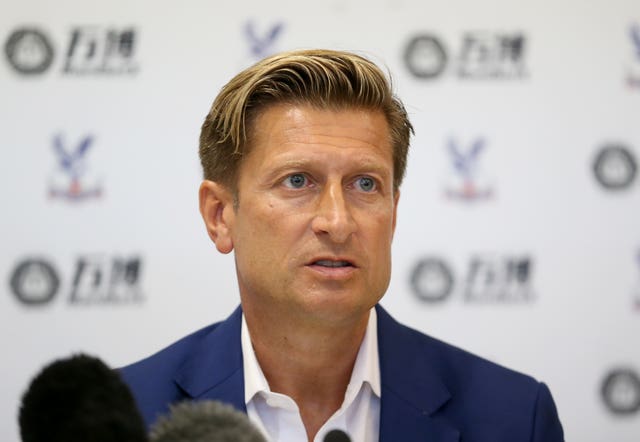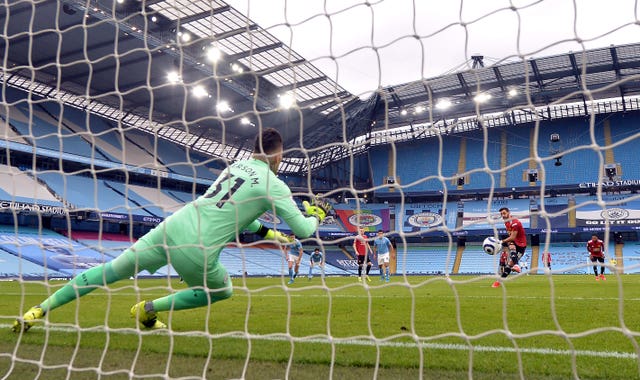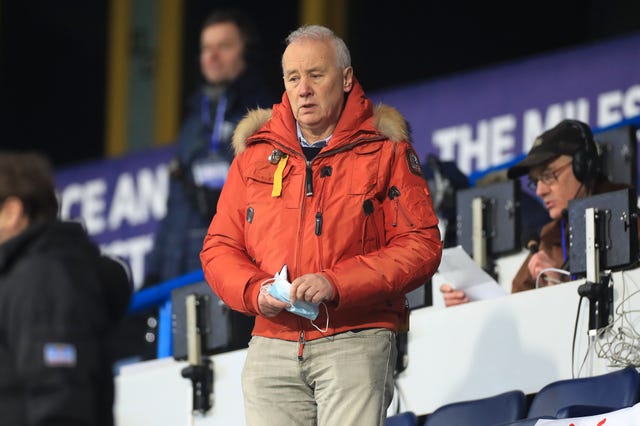Proposed changes to the format of the Champions League from 2024 would have a "devastating effect" on competitions in England, according to Crystal Palace chairman Steve Parish.
UEFA is looking to add an extra four matches per club in a revamped group stage, taking the competition overall from 125 games to 225.
Parish believes that could effectively wipe out the League Cup and be the start of a "creep" towards a future European super league.
🗣 "Who stands to benefit from this reform? From this extension in the number of games? Certainly not supporters. Most do not want more football. Instead, we want better football."
❌ FSE Executive Director @RonanEvain explains why most fans don't want more European games.
— Fans Europe (FSE) (@FansEurope) March 10, 2021
Speaking at the European Leagues' Club Advisory Platform, he said: "This would have a quite devastating effect on domestic competition in England.
"We have three competitions, one of which, the League Cup, is one of the largest contributors to the EFL and its clubs. This proposal will probably see the end of that cup in its entirety or reduced to some kind of youth competition."
Parish welcomed the opportunity to be involved in the discussions and criticised the European Club Association led by Juventus chairman Andrea Agnelli, which he said was "run for the benefit of a tiny amount of members yet has an extraordinarily powerful influence".
European Leagues' proposal is to increase the number of games in the group phase from six to eight, instead of the 10 proposed by UEFA. European football's governing body is looking at a 'Swiss model' where all teams play in one 36-team league.
On Monday, Agnelli described the proposal as very close to his "ideal" vision of the Champions League and said an agreement could be reached within a fortnight, but the level of opposition voiced by clubs in the European Leagues meeting suggests that is unlikely.
Parish also criticised the access model for the 2024 competition, which would allow two teams into the new-look competition based on historical co-efficient, provided they had done enough to qualify for one of the lesser European competitions.
"Last year, as it's proposed, Leicester would have finished fifth in the Premier League but two clubs below them (Tottenham and Arsenal) would have qualified for the Champions League based on some arbitrary period of success in Europe," he said.

"My question to everybody is, where does this all end? When we began, the Champions League was a knock-out competition with five games just for the champions, we're now looking at an extra 100 games.
"This may not be affecting your domestic league as much as it looks like it will be affecting our domestic competitions in this cycle, but the creep is never-ending.
"With the assault on the calendar, we are talking about a transfer of value from domestic leagues to European competition and I think it's very concerning.
"We are seeing with the co-efficient and the calendar principles that are being attempted to be ingrained, so that next time things can be changed even more and domestic competition in the end takes a secondary seat to a European super league."

EFL chairman Rick Parry painted an equally gloomy picture.
"The (proposed) calendar clearly poses a major threat to the future of the League Cup, certainly to the participation of those clubs involved in the Champions League and in turn this will have a massive impact on the EFL's revenues," he said.
Parry estimated that the changes would cut revenue to the EFL and its clubs by a third and pose "a very real threat to the existence" of some clubs.
The additional four Champions League matches in UEFA's plan would be set aside exclusively for the competition and spread across three nights – Tuesdays, Wednesdays and Thursdays.

Parry criticised this approach and said: "We have a healthy diet of midweek games and by extending exclusivity, UEFA is not creating competition between itself and domestic leagues, it's abusing a dominant position.
"Certainly, to say that you cannot play when we want to play, that's just not fair and not acceptable, and again from our perspective is going to have a massive impact on the revenues of our competitions."
UEFA's proposal – endorsed by the ECA – is for the four additional places in the 36-team league to be divided as follows – one to the fifth-ranked association (currently France), one to the domestic champion not already qualified with the best co-efficient, and then the final two places to clubs who have qualified for one of the lesser two European competitions and have the best historical co-efficient ratings.
European Leagues would adjust that, so that France is given one extra place but the other three places are given to domestic champions not already afforded a group stage place to widen access.








